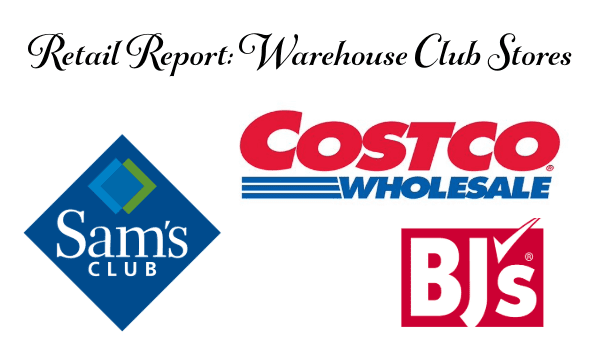Regional and online bulk-product retailers are also using strategies of the major club stores.
Rosemont, IL-based US Foods, Inc. owns CHEF’STORE, a wholesale food and kitchen supply provider to the foodservice industry that’s open to the public. The banner grew out of US Foods’ April 2020 purchase of Smart Foodservice Warehouse Stores.
The chain offers low everyday prices as well as regular specials and carries produce and other fresh categories. Products can be purchased by the case or in individual quantities, and the company does not require a membership. Prices are competitive but the stores are differentiated by strong customer service.
As of late fall 2023, CHEF’STORE had 90 locations, ranging from 20,000 to 23,500 square feet. Many are on the West Coast, with a sprinkling across the rest of the country.
Commerce, CA-based Smart & Final Stores, LLC has been in business for 153 years. It was founded in Los Angeles in 1871 under the name Hellman-Haas Grocery, making it one of the oldest continuously operating food retailers in the country.
It launched its private label Iris in the 1890s, thought to be the first U.S. store brand, and still carried today. Another business, Smart & Final Wholesale Grocers, was launched in 1914, and the two companies merged in 1953, doing business under the Smart & Final name.
Smart & Final positions itself as offering a warehouse shopping experience in a smaller, faster, grocery store-like format, while prioritizing innovation and service. It carries more than 3,000 club-sized items, as well as household-sized products, and its assortment includes produce and other fresh categories.
The customer base for Smart & Final’s traditional format leans toward small businesses and restaurants, according to Phil Lempert, the Supermarket Guru of Santa Monica, CA.
“They’re even more bare bones than Costco and Sam’s, and really look like a warehouse,” he says. “You go into Smart & Final, and you see boxes and rubber gloves and pots and pans.”
Smart & Final’s Extra! format, founded in 2008, is larger and with a more upscale, consumer-friendly feel than the original format. Extra! stores range from 25,000 to 40,000 square feet, versus about 17,000 for Smart & Final. They feature about 5,000 more items than a traditional Smart & Final store, with expanded selections of many categories, including its Sun Harvest and First Street private labels.
Extra! also offers more products and services typical of traditional grocery stores, including ready-to-eat and grab-and-go offerings, floral departments, and sushi bars.
As of November 2023, Smart & Final operated 255 locations across both formats in California, Nevada, and Arizona, with 198 of those being Extra! stores. There is no membership fee for either format.
The company has been owned by Grupo Comercial Chedraui’s U.S. division since 2021, when it purchased the chain from Apollo Global Management. Smart & Final was the owner of the 70-unit Smart Foodservice Warehouse Stores chain, which became CHEF’STORE after being sold to US Foods.
Online-only wholesale clubs have started to emerge as well.
Thrive Market, based in Playa Vista, CA, is an online-only, subscription-based marketplace for bulk organic groceries. It was founded in 2014 and organized as a B Corporation before becoming a Public Benefit Corporation in April 2023. It integrates sustainable practices into everything it does and was named one of Time’s most influential companies of 2022.
Thrive Market had revenues of close to $500 million in 2022 and 1.2 million subscribers as of the first quarter of 2023, with an annual renewal rate exceeding 70 percent.
It offers a curated selection of 5,000 to 6,000 nonperishable SKUs, including frozen and shelf-stable foods and green beauty and cleaning products. Thrive Market does not sell produce or other fresh categories, but executives say they hope to sell produce in the future. Its private label encompasses some of its best-reviewed and best-selling items.
Thrive Market’s annual subscription fee is $60, and members must spend at least $49 before qualifying for free shipping, which the company says helps keep prices low. For each membership sold, it supports a free membership for a person or family in need.
Boxed.com, another online bulk-products seller, was acquired by wholesaler MSG Distributors of Farmingdale, NY in mid-2023 after declaring bankruptcy and ceasing operations earlier in the year.
It sold groceries, including fresh produce and host of other items often in club-sized packaging. It did not require a membership fee, but launched a premium loyalty program, BoxedUp, which gave members free shipping. The program had 32,000 members in 2022, according to Hilco Streambank, which handled the sale to MSG.
Boxed had struggled financially—and was affected by the failure of Silicon Valley Bank in March 2023—but had built a good reputation for customer service and quality since its founding in 2013. The company’s new owner plans to relaunch the brand for both the business-to-business and business-to-consumer segments.
Brian Numainville, principal at The Feedback Group in Lake Success, NY, says none of these players is likely to challenge the supremacy of Costco, Sam’s Club, or BJ’s in the club store world.
“Combined, the three main players have about 1,300 stores, so their positions are established. It would be challenging for another player to really leverage scale.”
But some rivals do offer growth potential, he adds. “Smart & Final, for example, has more than 250 stores in a limited geographical area, which offers an opportunity for expansion.”
This is an excerpt from the feature story from the March/April 2024 issue of Produce Blueprints Magazine. Click here to read the whole issue.



